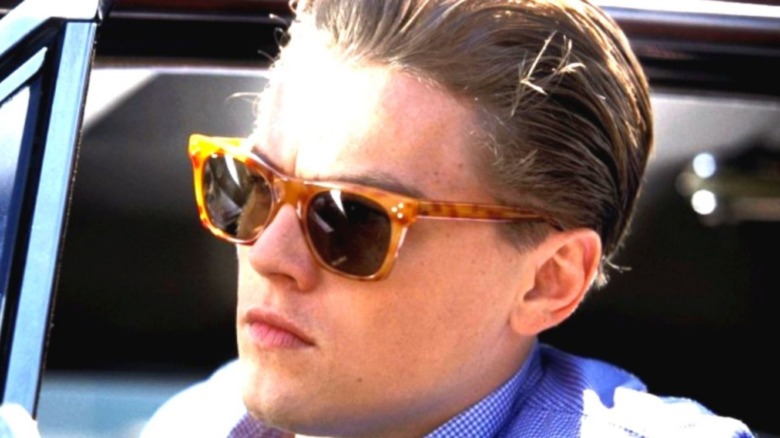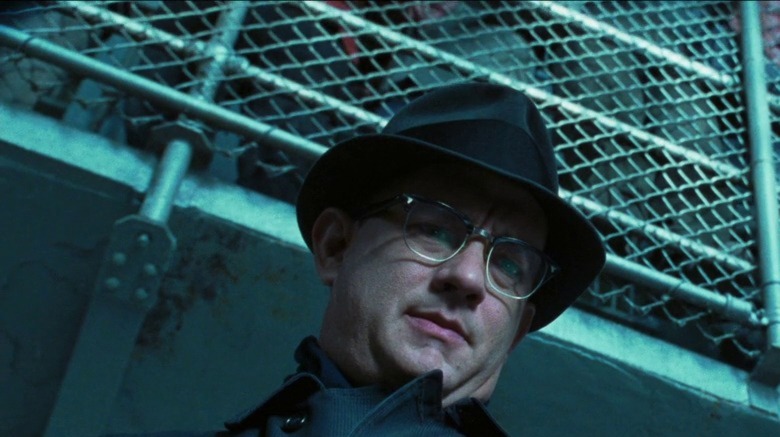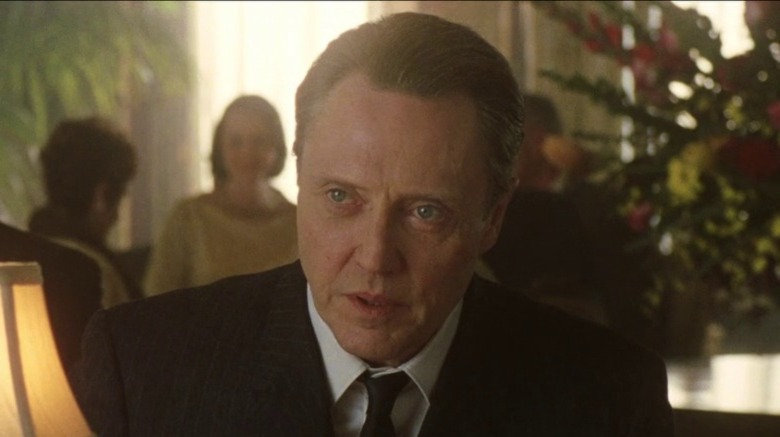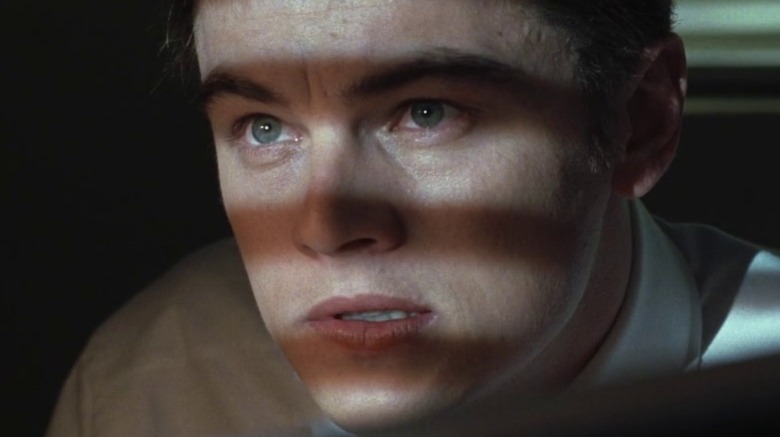The Ending Of Catch Me If You Can Explained
We may receive a commission on purchases made from links.
The 2002 Steven Spielberg movie Catch Me If You Can is the whirlwind cat-and-mouse story of a teenage con man and the FBI agent set on capturing him. In the film, Leonardo DiCaprio plays Frank Abagnale Jr., a lonely New York teen who longs to impress his father, who's a lightweight con man and somewhat of a local celebrity. Frank's French-born mother dotes on him, finding his sweet nature charming — if a bit peculiar for a 15-year-old boy.
Throughout the movie, Frank travels the world, convincing people he's a pilot, a doctor, and a lawyer. All the while, FBI agent Carl Hanratty (Tom Hanks) is in hot pursuit, trying to catch Frank — if he can. Hanratty ends up building a familial relationship with Frank and grows concerned about his well-being, but never lets those emotions completely cloud his judgment.
By the end of the movie, Frank has gone on a chaotic journey that leaves him settling for an unexpected life. Here's the ending of Catch Me If You Can explained.
Frank's final escape
The beginning of the movie actually drops audiences in the end. Hanratty has arrived in Marseille, France, to extradite Abagnale back to the U.S. When he finally gets to his prisoner, Abagnale is too sick to understand what's happening, or so Hanratty thinks. The degree of Abagnale's illness was actually his ruse to escape. On the flight back to the U.S., Abagnale is allowed to use the bathroom and manages to disassemble the toilet and crawl through to an opening above a wheel. As the plane makes its descent, Hanratty watches his prisoner sprint across the tarmac.
The real Frank Abagnale Jr. has confessed to some inaccuracies in the movie, telling Charleston Stage the movie was only "about 80% accurate," and there's been much speculation about the plausibility of escaping through an airplane bathroom. But, in Abagnale's book, Catch Me If You Can, he goes into detail about how he took apart the toilet and crawled out the plane. In the movie, this would be the last time he takes Hanratty on an exhaustive hunt, foreshadowing the eventual end of their rivalry.
Was Frank just trying to impress his father?
Speaking with IGN in May 2012, director Steven Spielberg explained the poetic license around the father-son story. "I wanted to continue to have that connection where Frank kept trying to please his father." He later reflected on Abagnale's own regrets about how his life of crime kept him from his family. "I'd come back alone to a hotel room and I would just think of my mom and dad and fantasize about getting them back together, and cry."
After Abagnale escapes Hanratty on the tarmac, he goes back to his childhood home in New Rochelle. Because he idolized his father, and always wanted to make him proud, he's hoping for one last chance to see him. But when Abagnale arrives, he sees that his mother has remarried and has a young daughter, who he talks to from outside the window. The flashing lights of the authorities bring this brief visit to an end, and Abagnale casually asks to be taken away. The relational hope that motivated Frank to escape the plane is gone.
Frank can no longer run
Abagnale is sentenced to 12 years of hard time. While in prison, the FBI offers him a get-out-of-jail-free card, with some strings attached. He has to work for the Financial Crimes Unit, under Hanratty's supervision. Speaking with The Charleston City Paper in 2015, Abagnale described his actual feelings about getting the FBI job. "When I got the offer [from the FBI], I truly looked at it as, well, here's a way out of prison," he reflected, "I don't know that in my mind I'd decided never to break the law again."
In the movie, Abagnale is overwhelmed by the amount of work given to him and bored by having to do honest work for the first time in his life. He becomes restless after he sees a pilot uniform in a store window, and briefly reverts back to his old habits. Hanratty confronts Abagnale, sharing a personal story that shows he understands the lonely road the younger man has been on all these years. Back in the FBI office, Hanratty asks Frank how he passed the Louisiana bar exam. Abagnale tells him he actually spent weeks studying for it, and that there was no con pulled. Hanratty realizes that Abagnale will do just fine in the real world.
The real Abagnale eventually took a straight and narrow path, becoming a global authority on bank fraud and forgery, as shown on his website. The skills Abagnale used to scam hundreds of thousands of dollars eventually made him millions. The Hanratty character, meanwhile, was based on real-life FBI Agent Joseph Shea. That familial relationship he built with Abagnale grew into a solid friendship that lasted until Shea's death in 2005.



